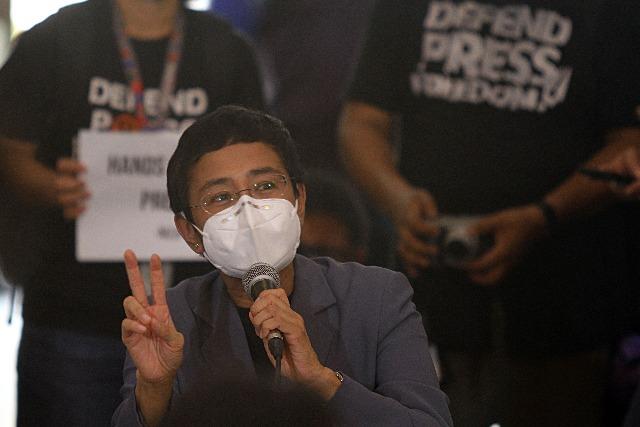Maria Ressa charged with cyber libel for 2nd time

Rappler CEO Maria Ressa has been charged with cyber libel for the second time.
Prosecutors filed the case before the Makati Regional Trial Court on November 23, around five months after Ressa and former Rappler researcher Reynaldo Santos, Jr. were convicted of cyber libel in Manila.
The second case is related to the first — initially convicted over a Rappler story that reported a businessman's supposed links to crime, Ressa is now accused of cyber libel for her tweet containing screenshots of a 2002 Philippine Star article about the same businessman.
The veteran journalist made the tweet in February 2019, a few days after she was arrested over the first case. She posted screenshots of the Star article which reported businessman Wilfredo Keng was being eyed as the "prime suspect" in the killing of former Manila councilor Chika Go.
The Star report also said Keng was accused of involvement in the smuggling of fake cigarettes and other illegal activities.
Philstar.com, which posts Star articles online, took down the 2002 story from its website in February 2019 "after the camp of Mr. Wilfredo Keng raised the possibility of legal action."
Ressa has asked the Makati court to dismiss the second case.
Her lawyers cited the Supreme Court's ruling on the cybercrime law which said only the author of a defamatory statement — not the people who shared it online — is liable for cyber libel.
They said there is no defamatory statement in Ressa's own tweet which reads: “Here’s the 2002 article on the ‘private businessman’ who filed the cyberlibel case, which was thrown out by the NBI then revived by the DOJ. #HoldTheLine."
"As a citizen and as a journalist, accused enjoys the protection of the Constitution which guarantees her freedom of expression, freedom of opinion, and as a journalist, freedom of the press. The only limitations are those imposed by law and the decisions of the Supreme Court," said the Free Legal Assistance Group, which represents Ressa.
"Keeping people informed, using any platform at her disposal (in this case, Twitter), is part of her duty as a journalist; certainly, the non-defamatory statement she wrote to inform people following her on Twitter falls under the exercise of her right under Article III, section 4 of the 1987 Constitution and cannot form the basis for this charge," the lawyers said in their motion to quash.—AOL, GMA News



